Vitamins
All information about "Vitamins" and the related magazine articles can be found here.
Our articles are written clearly and link to scientific studies where relevant. This is how we meet our own standards: we regularly deliver new, high-quality content for you—free of charge, no sign-up required, with the highest possible benefit to you.

Frankincense: the versatile resin of nature
Discover the history, applications and valuable ingredients of this traditional natural wonder.
Frankincense has inspired people for thousands of years with its fragrance and versatile applications. Whether in ceremonies or as a potential remedy - find out what makes this special resin so unique.

Hashimoto's thyroiditis: Understand, recognize, treat
Find out all about the causes, symptoms and possible treatment approaches for the most common thyroid disease.
Hashimoto's thyroiditis is the most common autoimmune disease of the thyroid gland. Find out how the disease develops, what symptoms can occur and what treatment options are available.
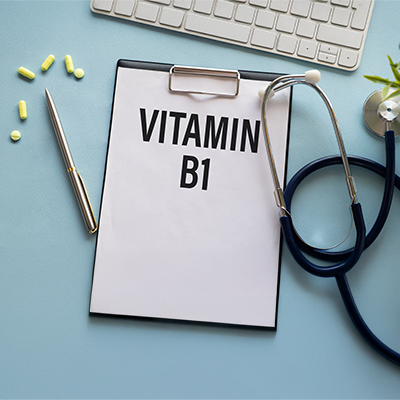
Beriberi: the underestimated consequence of a vitamin B1 deficiency
Find out how beriberi disease manifests itself, what causes it and how you can prevent a thiamine deficiency.
Beriberi is caused by a lack of vitamin B1 (thiamine) and can have serious consequences for the body. Read about the symptoms, how the disease is treated and how you can prevent it.
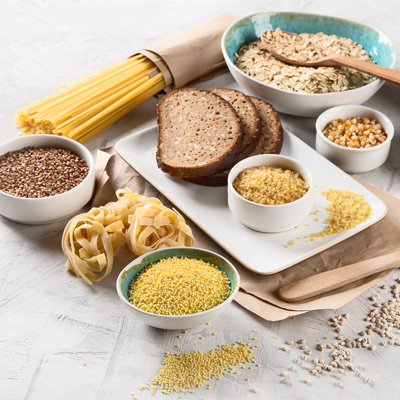
Polysaccharides: The invisible powerhouses for your diet
Find out how these complex carbohydrates support your health and what benefits they can offer the body.
Polysaccharides are complex carbohydrates that are found in many foods. Discover what role these polysaccharides play in our diet and what functions they fulfill in the body.
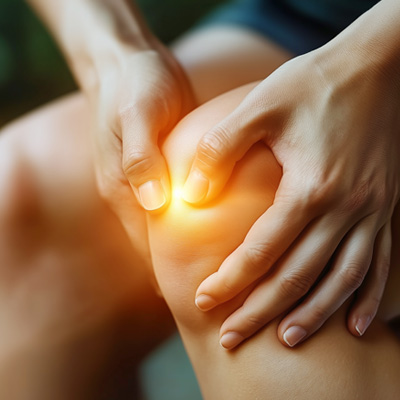
Glucosamine: a natural building block for your joints
Find out how glucosamine can help maintain joint structure.
Glucosamine is a natural component of our body and plays a central role in joint health. In this article, you will learn how it can support your joints and what you should keep in mind when taking it.
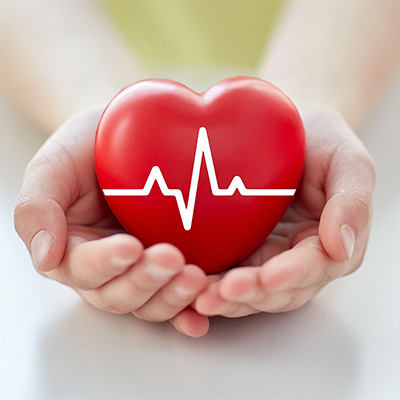
The cardiovascular system: your engine for health and energy
Discover how your cardiovascular system ensures that nutrients and oxygen reach every cell every day – and why it is so important to keep it healthy.
The cardiovascular system is our body's vital transportation system. It delivers oxygen and nutrients to every cell, keeping us moving every day. Learn how it works and why keeping it healthy is so important.

Micronutrients: small building blocks – big impact on your health
Find out how essential micronutrients can support your body and why they are indispensable, especially in times of stress and an unbalanced diet.
In today's hectic world, a balanced diet and vital substances often take a back seat. However, micronutrients – such as vitamins, minerals and trace elements – are essential for your health. Find out how these little helpers have a big impact and why they are indispensable in your everyday life.

Inflammation in the body: a protective mechanism with risks
Find out how inflammation protects the body and when it can become a health risk. Discover tips for helping your body to deal with inflammation.
Inflammation is the body's natural response to harmful influences. It protects us, but it can also become chronic and pose a health risk. Learn more about the balance between protection and risk and how you can help your body stay healthy.
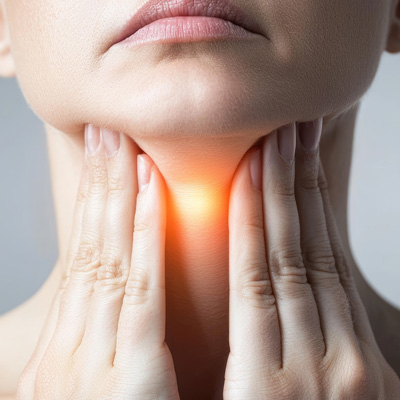
Hyperthyroidism: When the body gets out of balance
Discover the signs of an overactive thyroid and learn how it can affect physical and emotional balance.
An overactive thyroid can throw many bodily processes out of whack, causing everything from constant restlessness to severe mood swings. Learn how to recognize the signs of an overactive thyroid and the steps you can take to get it under control.
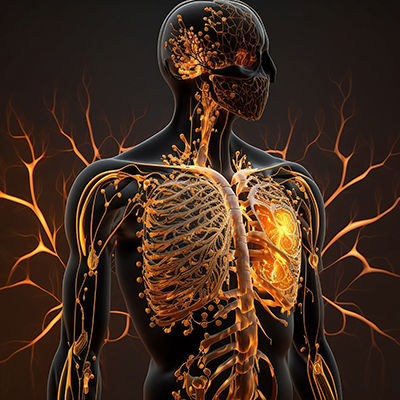
Mysterious autoimmune disorders
When the immune system gets out of control.
Find out what happens when the immune system suddenly attacks the body's own cells, what diseases there are and what symptoms you should take seriously in order to be able to act early.

Citrulline – the natural energy booster
Find out how citrulline can help support your performance and endurance in everyday life.
Citrulline can support your energy and endurance, promote recovery and improve blood flow. Discover how this amino acid derivative can help you in your daily life.
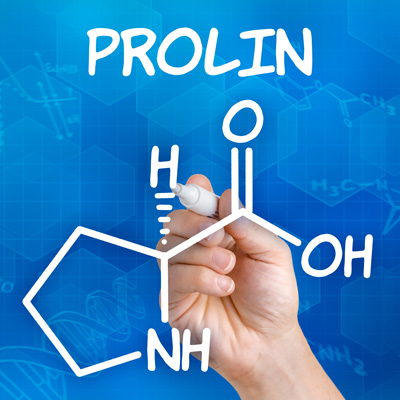
Proline: the building block for healthy joints
Discover the benefits of proline for your joints, skin and connective tissue.
Proline is an amino acid that plays an important role in healthy joints, skin and connective tissue. Find out how proline can help strengthen your joints and keep your skin elastic. Immerse yourself in the world of amino acids and their benefits for your health!

Fibromyalgia: living with chronic pain
Understand, relieve and live better - your source of knowledge and support for fibromyalgia.
Fibromyalgia affects millions of people worldwide and causes chronic pain, fatigue and sleep disorders. Find out what treatment options are available to alleviate symptoms and improve quality of life. Discover tips and strategies for a better well-being.
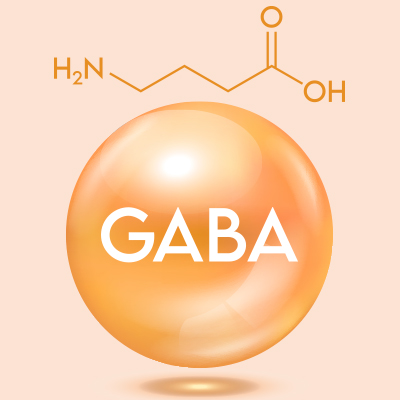
Say goodbye to stress - hello GABA!
Do you often feel stressed and overworked? GABA, a natural neurotransmitter, could be the solution. Find out how GABA helps your body to reduce stress, calm your nerves and promote a feeling of deep relaxation.
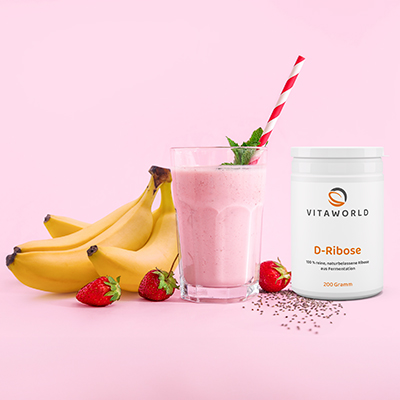
D-Ribose Power-Smoothie
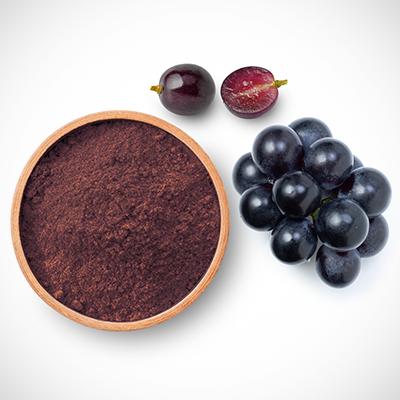
OPC - antioxidants for better health!
Why OPC can fight oxidative stress
Every day we fuel our health with negative influences, sometimes consciously, sometimes unconsciously. Find out here how oxidative stress damages our body and how oligomeric proanthocyanidins (OPC) can strengthen it.
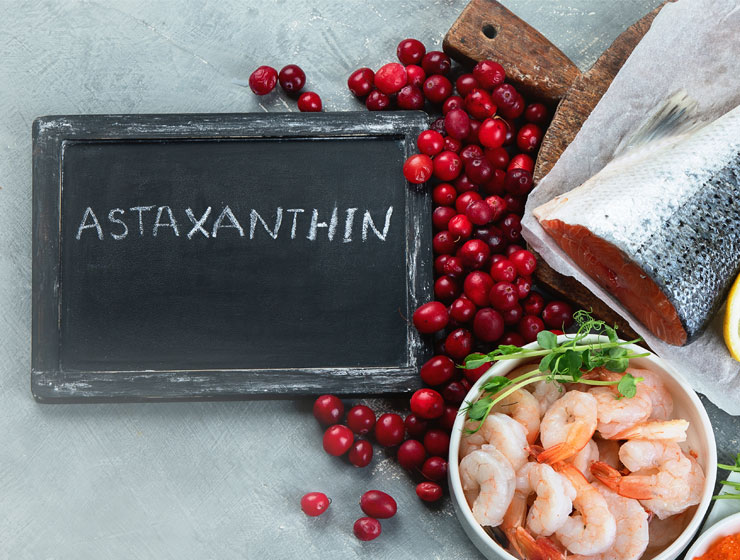
Astaxanthin - the "super antioxidant"?
Good for skin, joints and immune system
Astaxanthin is said to have a greater effect than other carotenoids, vitamin E and even vitamin C - what's behind this?
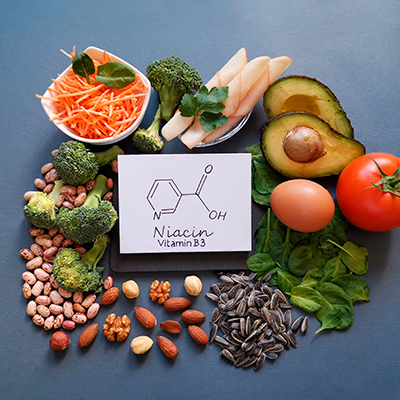
Niacin - a versatile B vitamin!
This is how vitamin B3 works in the body
As an essential vitamin, niacin plays an important role in the human body. But what exactly is this nutrient and how can it benefit our health?

D-Ribose - a natural power up
From the muscles to the heart: D-ribose is of great importance for our health and performance. As a component of all human cells, it is essential for the body's energy supply and regeneration. Health-conscious people and athletes therefore rely on this natural option to support their vitality and their cells. Find out more about D-ribose here now!
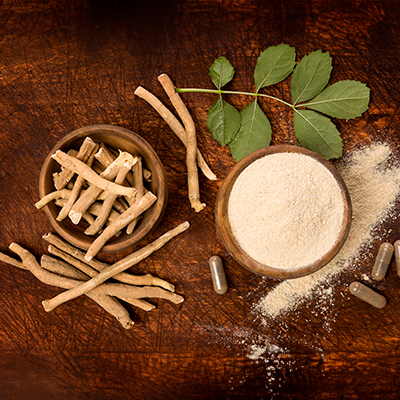
Ashwagandha - a real health all-rounder?
The powder from the sleeping berry is an integral part of Ayurvedic medicine and is valued for its many health-promoting properties. Read more now.

All you need to know about vitamin A
Vitamin A - also known as retinol - has become an important ingredient in anti-ageing skincare products. But it also has many other benefits.

Not in the mood for anything?
Listlessness, apathy, fatigue - seemingly harmless terms that can drastically reduce the quality of life of those who suffer from them. How these complaints differ and what diseases and causes may be behind them.

How creatine affects fitness
Creatine is primarily known for its effect on muscle building - but it plays a far more versatile role in the human body. We have summarised everything you need to know about this special substance for you in this article.

These conditions can cause hair loss
Hair loss, sudden hair loss, circular hair loss - when the hair on your head disappears, it can be a huge psychological burden for many people. What diseases can cause hair loss.
Vitamins - essential for our health
Vitamins play a crucial role in our health and well-being. They are essential nutrients that our body needs to function optimally. But what different vitamins are there? Which foods contain them? And what functions do the individual vitamins have? We take a closer look at these and other questions in this article.
The 13 known vitamins
There are a total of 13 known vitamins that are essential for the human body. These can be divided into two main groups: fat-soluble and water-soluble vitamins.
Fat-soluble vitamins
The fat-soluble vitamins include:
- Vitamin A
- Vitamin D
- Vitamin E
- Vitamin K
These vitamins can be stored in the body's fatty tissue and therefore do not need to be taken daily.
Water-soluble vitamins
The water-soluble vitamins include:
- Vitamin C
- B vitamins: B1, B2, B3, B5, B6, B7 (biotin), B9 (folic acid), B12
In contrast to fat-soluble vitamins, these cannot be stored in the body and must be taken in regularly through food.
What is the importance of the individual vitamins for humans?
Each vitamin has specific functions in the body. We will now take a closer look at what these are.
Vitamin A
Vitamin A, also known as retinol, is important for the production of testosterone and sperm cells, making it a significant factor in reproduction. It also promotes healthy bones, teeth and cartilage and is essential for the development and regeneration of the skin. The daily requirement for vitamin A varies according to age and gender, but is generally between 0.8 and 1.1 milligrams in the form of beta-carotene (which is converted to vitamin A in the body).
Vitamin D
Vitamin D is often referred to as the sunshine vitamin, as it is the only vitamin that can be produced by the body itself with the help of sunlight. It is crucial for a positive mood, a strong immune system and healthy bones and muscles. It also contributes to a healthy cardiovascular system. The daily requirement for vitamin D is around 20 micrograms [1].
Vitamin E
Vitamin E acts as a powerful antioxidant with anti-inflammatory properties. It is important for memory, healthy blood vessels and the immune system. Adults should consume between 11 and 15 milligrams of vitamin E daily. [2]
Vitamin K
Vitamin K is primarily known for its importance in blood clotting, where it is involved in the activation of several clotting factors. Vitamin K also has an important influence on bone metabolism. It activates the protein osteocalcin, which is essential for new bone formation and bone remodeling. The daily requirement for vitamin K varies according to age and gender, with good sources being green vegetables for vitamin K1 and animal products for vitamin K2. An adequate supply of vitamin K is particularly important for bone health, especially in older people, to reduce the risk of osteoporosis and bone fractures.
Vitamin C
Vitamin C is known as the all-rounder for the immune system. It not only strengthens the body's own defenses, but also supports the formation of bones and cartilage. Vitamin C also improves the absorption of iron from plant foods and acts as an antioxidant by scavenging free radicals and thus protecting the cells. It also plays a supporting role in wound healing. The average daily requirement of vitamin C is around 100 milligrams, which can easily be met by eating a large orange or 75 grams of currants [3].
B-vitamins
B vitamins are essential for the production of energy from carbohydrates and proteins and support many bodily functions:
- Vitamin B1 (thiamine) is crucial for energy production and supports the nervous system and muscles.
- Vitamin B2 (riboflavin) is known as an energy vitamin and supports the production of energy from fat, protein and carbohydrates as well as the burning of fat.
- Vitamin B3 (niacin) promotes energy production, has a positive effect on thinking and memory and can help to reduce tiredness.
- Vitamin B5 (pantothenic acid) is an important component of the coenzyme CoA and is required for the breakdown of carbohydrates, fats and amino acids.
- Vitamin B6 (pyridoxine) contributes to normal energy, protein and glycogen metabolism and supports normal nerve function.
- Vitamin B7 (biotin) is involved as a coenzyme in the conversion of nutrients into energy and ensures a functioning protein and fat metabolism.
- Vitamin B9 (folic acid) is important for athletes as it contributes to the normal functioning of the metabolism of various nutrients.
- Vitamin B12 plays an important role in the formation of red blood cells, the function of nerve cells and cell division and also has an influence on our psyche.
What is the daily vitamin requirement?
There is no general answer to the question of which vitamins you should take every day. Individual requirements depend on various factors such as age, gender, lifestyle and state of health.
A healthy, varied diet with plenty of fresh fruit, vegetables, wholegrain products, lean meat and fish generally provides all the vitamins you need. Experts recommend:
- Three portions of vegetables and two portions of fruit daily
- Regular consumption of wholemeal and dairy products
- Spend time outdoors to stimulate the body's own vitamin D production
Special situations and risk groups
In special situations and for risk groups, additional vitamin supplementation may be necessary:
- With a vegetarian or vegan diet, for example, it is important to pay particular attention to the supply of vitamin B12, as this is mainly found in animal products.
- Pregnant and breastfeeding women have an increased need for folic acid to prevent developmental disorders in the fetus.
- Additional intake may also be necessary in the case of certain illnesses that impair vitamin absorption.
- Targeted vitamin supplementation can also be important for competitive athletes. Intensive physical exertion and an increased metabolism increase the need for certain vitamins, especially the water-soluble B vitamins and vitamin C. These vitamins are increasingly lost through sweat and urine. These vitamins are increasingly lost through sweat and urine. Supplementation may also be advisable for athletes who have a high carbohydrate diet with a low micronutrient density or who exclude certain food groups.
In allen Fällen ist eine ärztliche Beratung ratsam, wenn Sie Nahrungsergänzungsmittel wie einem Vitamin-B-Komplex, Multivitamin oder anderen Vitamine von A-Z einnehmen möchten, weil ein Arzt Ihren individuellen Bedarf ermitteln kann. Das gilt insbesondere dann, wenn die Einnahme hochdosiert erfolgen soll.
The role of vitamins for the metabolism
Vitamins play a crucial role in metabolism and are essential for many vital functions of the body. They are not only involved in numerous metabolic reactions and regulate the utilization of carbohydrates, proteins and minerals, but also act as cofactors for enzymes that are responsible for the build-up and breakdown of substances in the body.
B vitamins are particularly important for energy metabolism: vitamin B2 (riboflavin) triggers energy production from carbohydrates and fat. Vitamin B6, on the other hand, is involved in muscle building and the conversion of amino acids.
Vitamin C supports fat burning by promoting the production of noradrenaline and carnitine. Vitamins also influence the hormone balance, such as the production of thyroid hormones, which regulate the metabolism [4]. Last but not least, they support the immune system and are important for the formation of cells, blood cells, bones and teeth as well as for the function of enzymes that ensure a smooth metabolism in the cells.
Vitamin-rich foods: natural sources for your health
To provide your body with an optimal supply of vitamins, you should eat a varied and balanced diet. The following foods are particularly helpful here:
- Vitamin A: carrots, sweet potatoes, spinach, mangoes
- Vitamin D: Fatty fish (e.g. salmon, mackerel), egg yolk, mushrooms
- Vitamin E: Nuts and seeds, vegetable oils (especially wheat germ oil), avocados
- Vitamin K: kale, spinach, broccoli, Brussels sprouts, parsley, rocket, chives, chickpeas, lentils, rapeseed oil
- Vitamin C: citrus fruits, peppers, broccoli, acerola cherries
- B vitamins: Whole grain products, legumes, meat and fish, eggs, dairy products
Vitamins and the immune system: a strong team
Vitamins help to strengthen and maintain our body's own defenses. Vitamin C is particularly important here. It not only supports the function of white blood cells, our immune cells, but also acts as a potent antioxidant that protects our cells from harmful free radicals [5].
Vitamin D has proven to be an important modulator of the immune response. Studies show that an adequate supply of vitamin D can reduce the risk of infections. This underlines the importance of adequate vitamin D intake, especially in regions or seasons with little sunshine.
Vitamin E also makes an important contribution to immune defense. As a powerful antioxidant, it protects our cells from oxidative stress and thus supports the body's general resistance to pathogens.
Vitamin A is also important for our mucous membranes.
Vitamins in combination
Vitamins should not be considered in isolation, as they often only develop their full effect in combination with other nutrients. One of the best known and most important interactions is between vitamin D and calcium. Vitamin D plays a crucial role in the absorption of calcium in the intestine and is therefore essential for keeping our bones healthy. Without sufficient vitamin D, the body would not be able to optimally utilize the calcium it absorbs, which could lead to reduced bone density in the long term.
Vitamin C and iron also work well together. Vitamin C significantly improves the absorption of iron, especially from plant sources. This is particularly important for vegetarians and vegans, but also for anyone else who wants to optimize their iron intake.
Vitamin E and omega-3 fatty acids also work best together. Omega-3 fatty acids are known for their numerous health benefits, but are also very sensitive to oxidation. This is where vitamin E comes into play: as a powerful antioxidant, it protects the valuable omega-3 fatty acids from oxidative damage and thus maintains their effectiveness. This combination is particularly relevant for heart health and the function of the nervous system [6].
Trace elements such as zinc and selenium also work closely with vitamins to fulfill various important functions in the body.
Special vitamin requirements at different stages of life
Vitamin requirements can change depending on the phase and situation of life:
Pregnancy and breastfeeding
The need for many vitamins is increased during pregnancy and breastfeeding. These are particularly important:
- Folic acid: to prevent neural tube defects in the unborn child
- Vitamin D: for the development of the baby's bones
- Vitamin B12: for the development of the nervous system
Childhood and youth
- Vitamin D: for healthy bones
- Vitamin A: for growth and development
- B vitamins: for energy and the nervous system
Seniors
In old age, the need for certain vitamins can increase, while absorption is often more difficult:
- Vitamin D: for the prevention of osteoporosis
- Vitamin B12: as absorption is often impaired in old age
- Antioxidants (vitamin C, E): to protect against age-related diseases
How can I recognize a vitamin deficiency?
Vitamin deficiency can manifest itself through various symptoms and should be taken seriously. Common signs include persistent tiredness, increased susceptibility to infections, problems with skin and hair and difficulty concentrating. However, these symptoms can also have other causes, which is why a visit to the doctor is advisable if a vitamin deficiency is suspected. The vitamin status can be determined precisely by means of specific blood tests. A balanced and varied diet is the key to preventing a vitamin deficiency.
Vitamins and disease prevention
Vitamins play an important role in the prevention of various diseases:
- Cardiovascular diseases: Vitamins C and E as antioxidants can reduce the risk
- Osteoporosis: Vitamin D and K are important for bone health
- Cancer: Antioxidants such as vitamin C, E and beta-carotene may be able to reduce the risk of certain types of cancer. However, experts are skeptical about this [7].
- Eye diseases: Vitamin A is essential for eyesight.
Vitamins are little helpers with a big effect
Vitamins are essential nutrients that play a central role in our health and well-being. They support numerous bodily functions, strengthen our immune system and our nerves and help us to remain efficient and vital.
Food supplements (in capsule, tablet or powder form) can be useful in certain situations. But remember: they are never a substitute for a healthy lifestyle and diet.
Sources
[1] https://www.rki.de/SharedDocs/FAQ/Vitamin_D/Vitamin_D_FAQ-Liste.html
[2] https://www.aok.de/pk/magazin/ernaehrung/vitamine/vitamine-wichtig-fuer-das-immunsystem-und-die-abwehrkraefte/
[3] https://www.aok.de/pk/magazin/ernaehrung/vitamine/vitamin-c-wie-viel-brauchen-wir/
[4] https://www.schilddruesenpraxis.at/spurenelemente-schilddruese.html
[5] https://pubmed.ncbi.nlm.nih.gov/29099763/
[6] https://pubmed.ncbi.nlm.nih.gov/33445534/
[7] https://www.krebsgesellschaft.de/onko-internetportal/basis-informationen-krebs/bewusst-leben/basis-informationen-krebs-bewusst-leben-ernaehrung/mit-vitaminen-kre.html
